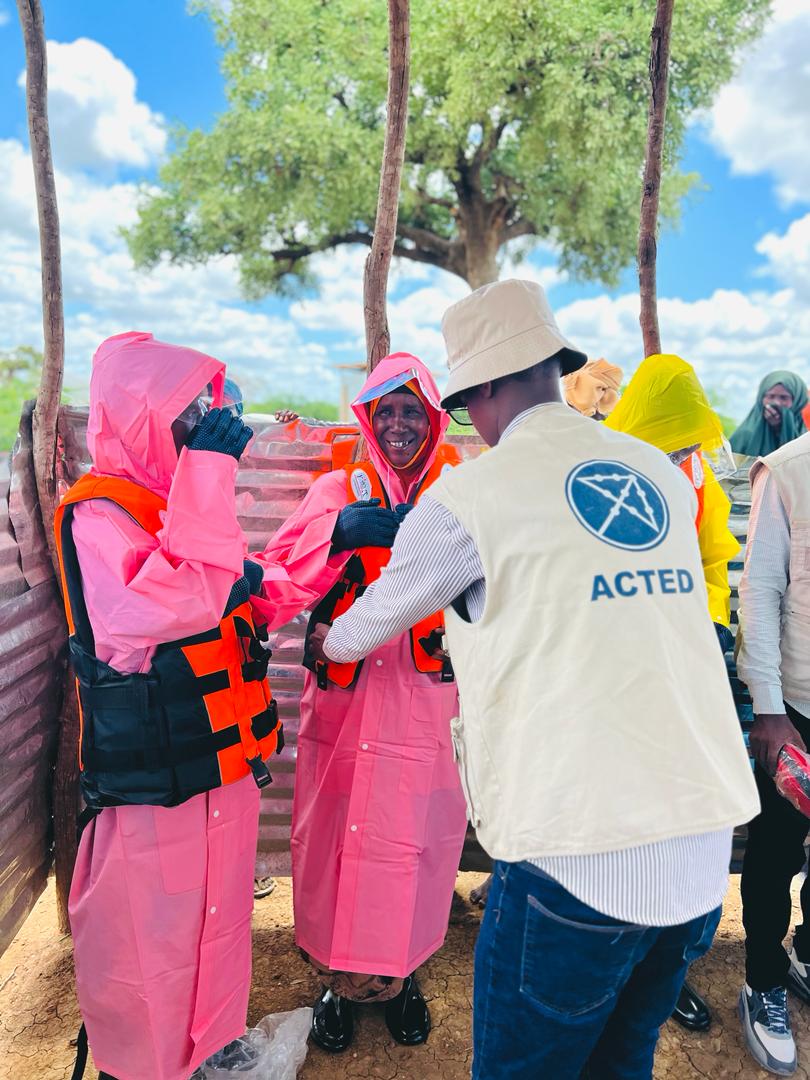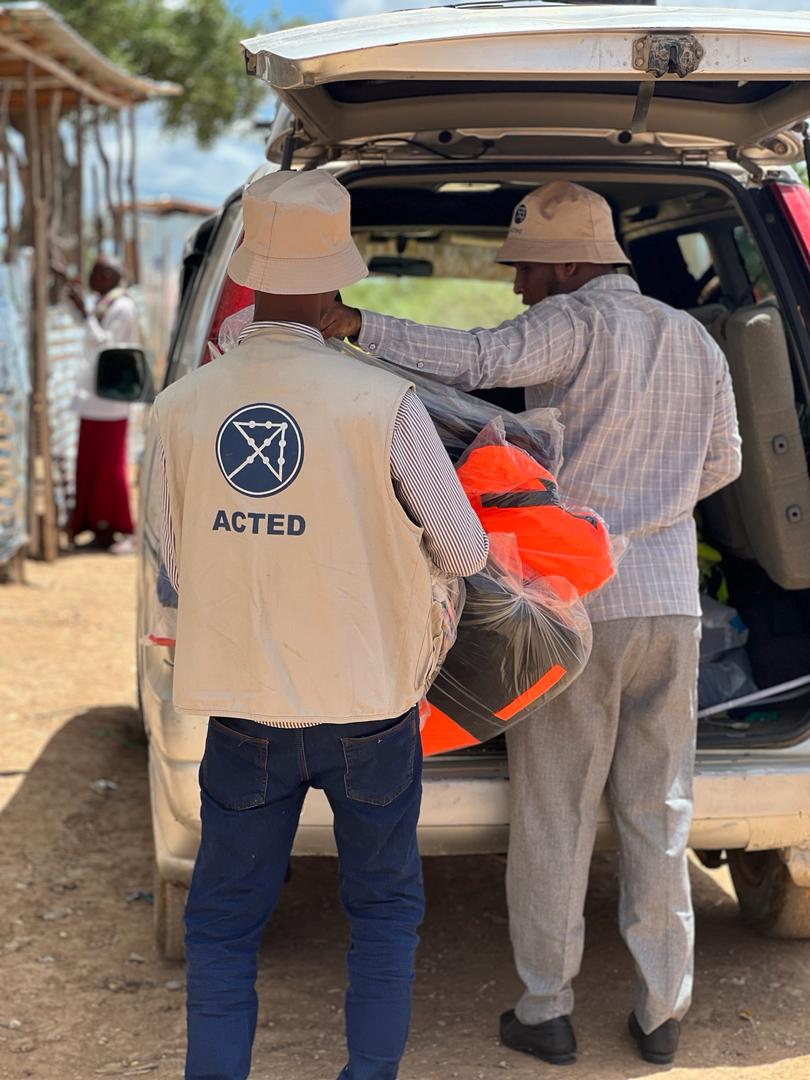In November 2023, El Nino flooding struck southern and central Somalia, causing thousands of people to evacuate their homes. Many of these displaced population have been forced to live in makeshift camps under degraded conditions, having lost their houses and livelihoods.
The riverine town of Baardheere, Gedo region, has been one of the worst affected areas due to intense rainfall and flash floods in October 2023. The overflow of Juba River inundated many villages in the town, resulting in deaths and damaged homes and infrastructures. Fourteen individuals lost their lives[1] in Baardheere, with thousands forced to move to IDP camps for safety reasons.
The displaced population has faced immense challenges, including lack of food, clean water and shelter. The absence of adequate warning system, information and preparedness measures exacerbated the vulnerability of the affected communities.
Capacitating Flood Committee against escalating flood threats in Baardheere

From November 2023 to April 2024, with the financial support of the Somalia Humanitarian Fund (SHF), Acted provided life-saving assistance to flood-affected and food-insecure households in Baardheere to enable them to meet their basic needs while coping with the consequences of floods. The project provided emergency food assistance through three cycles of Unconditional Cash Transfers (UCT) to over 10,500 individuals, ensuring access to essential daily foods during the flood crisis, thus alleviating food insecurity.
As part of the project, Acted enhanced community resilience and capacity to respond to future disasters by establishing and reinforcing community-based surveillance with a robust flood alert system. To this end, Acted trained 50 community flood committee members across 10 sites (5 IDP and 5 Host Communities) in Baardheere on flood prevention and mitigation measures. Following the training, the flood committee members were provided with personal protective equipment kits (PPE), including gumboots, raincoats, gloves, jackets, portable loudspeakers, and first aid materials.
From January to April 2024, the flood committee organised 8 capacity building workshops reaching 150 flood-affected community members across the aforementioned 10 sites in Baardheere. These workshops provided community members with good practices and lessons learned during the response and recovery processes, equipping communities with tools and knowledge to prepare for, respond to, and manage flood-related issues.
To further complement the community-based alert system, Acted conducted outreach community mobilisation sessions in the targeted communities to raise awareness on flood risks, mitigation, and early response actions. Additionally, ten outreach workers were recruited and trained on flood prevention, mitigation, and response to support daily engagement and coordination of the Flood Committees with flood-affected communities.

Maslah Eedin* is a member of the flood committee and the leader of Shebeel IDP camp, in Baardheere district. He was among the people heavily affected by the Deyr floodings, in November 2023, and he recognised the importance of receiving this kind of preparedness training to effectivity cope with flood effects.
To increase community resilience and minimize the effects of floodings, Acted provided capacity building training and PPE tools to the flood committee members, including Maslah. Thanks to this initiative, along with the other Flood Committee members, Maslah, enhanced his capacity in floodplain mapping and risk assessment, flood preparedness measures, property protection strategies and post-flood recovery procedures.
Mobilising the community during the rainy season was a daunting task due to the muddy roads and lack of necessary equipment. With PPE kits distribution, Maslah was enabled to perform his tasks, walking safely in the sites and reaching more people with key life-saving information and support.
Maslah expressed his gratitude to Acted and its funded donor, the Somali Humanitarian Fund (SHF), for the life-saving assistance and highlighted the importance of these proactive measures to minimize the risks and enhance the preparedness of the vulnerable populations against recurring natural hazard.
In 2024, FAO SWALIM has forecasted that up to 770,000 people could be affected by Gu’ heavy rains and floods in 22 hotspot districts across Somalia. In this context, similar projects are fundamental not only to provide immediate relief to the affected populations, but also to improve localization, transferring knowledge and best practices to the local populations that can help mitigate future natural disasters and develop more sustainable coping mechanisms.
* The name has been changed to protect the identity of the beneficiary.